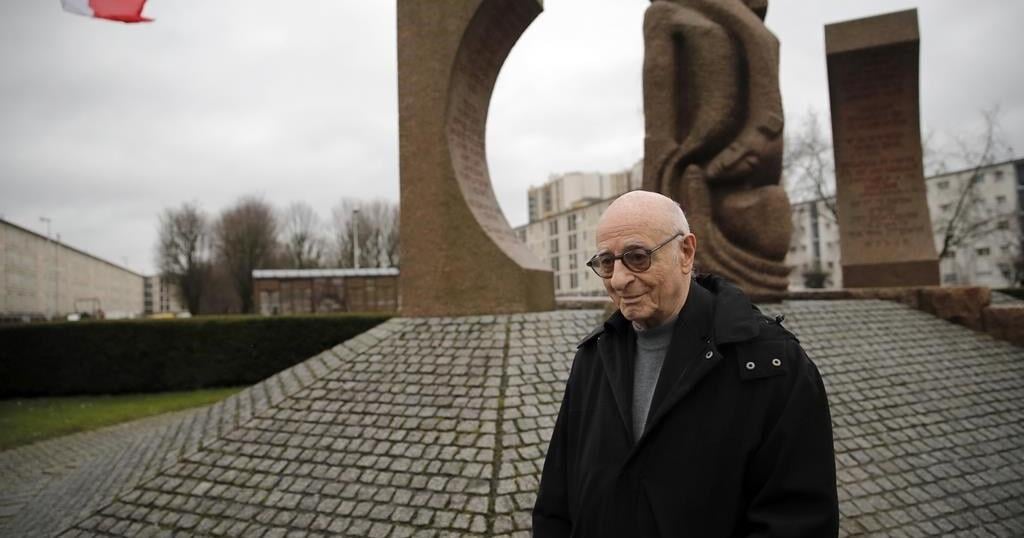PARIS (AP) — Victor Perahia, the president of the French Union of Auschwitz Deportees and a Holocaust survivor, has died. He was 91.
Perahia, who was deported as a child to the Nazi death camp of Bergen-Belsen, died on Monday in the eastern Paris suburb of Saint-Mande, the Union of Auschwitz Deportees said in a statement. The cause of death wasn’t disclosed.
The union hailed Perahia, as “one of its eminent figures, who worked with great humanity and determination to preserve the memory of the Shoah” for other generations.
As a child survivor of the Holocaust, the ever present “racism and antisemitism tormented him and fueled his strength to awaken minds,” French President Emmanuel Macron said in a statement.
He added: “As a lesson for future generations, he considered human cruelty to be limitless and the duty to fight without fear against all forms of intolerance and all attacks on basic human rights.”
Perahia’s death comes four months before the 80th anniversary of the liberation of the Auschwitz death camp. Six million European Jews and people from other minorities were killed there and in other extermination camps across Europe by the Nazis and their collaborators during the Holocaust.
Perahia was born on April 4, 1933 in Paris into a family of fairground merchants. He lived in Saint-Nazaire in western France. He was arrested along with his parents in July 1942. They were taken to Lande internment camp, in central France, and then to Drancy camp, in the Paris region, where nearly 4,000 people were detained by French gendarmes.
He was interned in Drancy for nearly two years before he was deported to Bergen-Belsen concentration and a forced labor camp with his mother in 1944. He was freed by Soviet troops at the end of March 1945. His father, Robert Perahia, was deported to Auschwitz, where he died along with Victor Perahia’s maternal grandfather.
“The witnesses are leaving us,” Joël Mergui, president of the Paris Consistory, said in a post on X. “We must take over the fight against antisemitism.”
After years of keeping silent of the horrors that he and his family had endured, Perahia published a memoir of a stolen childhood in 2015. He often recounted the trauma and suffering of the Holocaust in Paris schools and at memorials. He became president of the Union of Auschwitz Deportees
France bestowed him with the Knight of the Legion of Honor and the National Order of Merit for enduring and bearing witness to unimaginable human cruelty and for preserving the memory of the Holocaust for future generations.

























